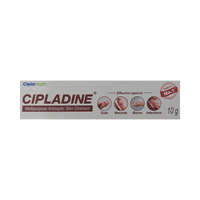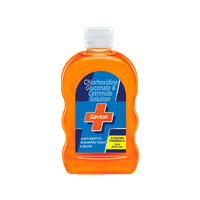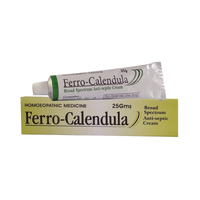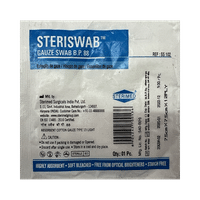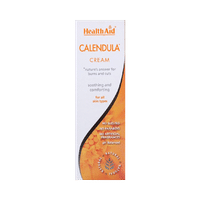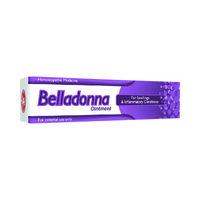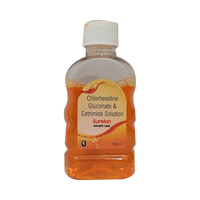E Sylate M 250 mg/250 mg Tablet

Rs.83for 1 strip(s) (10 tablets each)
food interaction for E Sylate M
alcohol interaction for E Sylate M
pregnancy interaction for E Sylate M
lactation interaction for E Sylate M
food
alcohol
pregnancy
lactation
E Sylate M 250 mg/250 mg Tablet may be taken with or without food, but it is better to take it at a fixed time.
Take it with food, if it causes stomach upset.
None
Take it with food, if it causes stomach upset.
None
CAUTION
E Sylate M 250 mg/250 mg Tablet may cause excessive drowsiness with alcohol.
UNSAFE
Information regarding the use of E Sylate M 250 mg/250 mg Tablet during pregnancy is not available. Please consult your doctor.
CONSULT YOUR DOCTOR
Information regarding the use of E Sylate M 250 mg/250 mg Tablet during breastfeeding is not available. Please consult your doctor.
CONSULT YOUR DOCTOR
SALT INFORMATION FOR E Sylate M
Tranexamic Acid(250mg)
Uses
Tranexamic Acid is used in the treatment of bleeding. It is used to prevent or reduce bleeding for short period of time in conditions like heavy periods, dysfunctional uterine bleeding, nosebleed, tooth removal, after prostate surgery or after bladder surgery.
How it works
Tranexamic Acid is an anti-fibrinolytic. It works by preventing the breakdown of blood clots to control excessive bleeding during periods, or after surgery.
Common side effects
Musculoskeletal (bone, muscle or joint) pain, Joint pain, Headache, Back pain, Vomiting, Nausea, Abdominal pain, Fatigue, Diarrhea, Hypotension (low blood pressure), Sinus disorder, Nasal discomfort, Muscle cramp, Migraine, Anemia (low number of red blood cells), Allergic dermatitis, Lightheadedness, Thromboembolism, Anaphylactic reaction, Changes in color vision, Retinal artery occlusion, Ligneous conjunctivitis
Ethamsylate(250mg)
Uses
Ethamsylate is used in the treatment of bleeding. It is used to prevent or reduce bleeding in conditions like abnormal blood loss during periods and dysfunctional uterine bleeding. It also prevents or reduces bleeding during, before or after delicate surgeries.
How it works
Ethamsylate is a haemostatic medication. It works by increasing the ability of platelets to stick together and form blood clots. It also helps control bleeding from tiny blood vessels (capillaries).
Common side effects
Injection site reactions (pain, swelling, redness), Skin rash, Headache, Nausea, Vomiting, Diarrhea
SUBSTITUTES FOR E Sylate M
169 Substitutes
169 Substitutes
Sorted By
 Rs. 139pay 63% more per Tablet
Rs. 139pay 63% more per Tablet Rs. 175pay 107% more per Tablet
Rs. 175pay 107% more per Tablet Rs. 217.84pay 157% more per Tablet
Rs. 217.84pay 157% more per Tablet Rs. 305pay 259% more per Tablet
Rs. 305pay 259% more per Tablet Rs. 336.41pay 298% more per Tablet
Rs. 336.41pay 298% more per Tablet
Expert advice FOR E Sylate M
- Tranexamic Acid helps prevent or reduce heavy bleeding post surgery and in conditions such as heavy periods, dysfunctional uterine bleeding, and nosebleeds.
- Your doctor will prescribe the lowest effective dose for the shortest possible time necessary to relieve your symptoms.
- If taking for heavy periods, take it on the first day as taking it before or after will not have any benefit.
- Your doctor may monitor your vision regularly while you are taking this medicine.
- Inform your doctor if you have a history of kidney or liver disease.
- Inform your doctor if there is no improvement in your bleeding after using this medicine for three consecutive periods.
Frequently asked questions FOR E Sylate M
Tranexamic Acid
Q. Can Tranexamic Acid cause pulmonary embolism?
Tranexamic Acid promotes blood clotting and can rarely cause blood clot to travel to the lungs (pulmonary embolism) which can turn fatal sometimes. Pulmonary embolism is not a common side effect in patients taking Tranexamic Acid but can occur in overdosing, patients with long bedrest or prone individuals. Evidence suggests that the increased risk of clot can be due to some other additional risk factors as well.
Q. Can you take Tranexamic Acid on an empty stomach?
Tranexamic Acid can be taken with or without food with a glass of water. The medicine should be swallowed as a whole and should not be crushed or chewed.
Q. Can I take Tranexamic Acid for more than 5 days?
The dose and duration of this medicine is decided by the type of disease for which it is prescribed. For heavy bleeding during monthly menstruation, it is usually taken for up to 5 days. For other conditions it can be prescribed for less than 5 days and even more that 5 days which is decided by the prescribing physician.
Ethamsylate
Q. How does Ethamsylate work?
Ethamsylate belongs to a class of medications called hemostatic agent. It acts by stopping bleeding from small blood vessels by stabilizing the wall of these blood vessels and improving platelet (blood cells that help in clotting)function.














